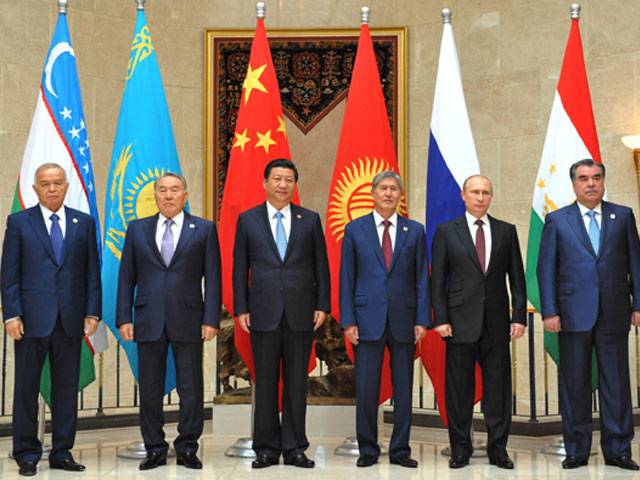BISHKEK, Kyrgyzstan - President Vladimir Putin on Friday won the support of Iran and China at a regional summit on Russia’s initiative for Syria to hand over its chemical weapons, which he said had proved the “serious intentions” of the Damascus regime.
Putin attended the summit of the Shanghai Cooperation Organisation (SCO), a regional security group sometimes seen as an eastern counterweight to NATO, in Kyrgyzstan a day after President Bashar al-Assad said he supported the Russian plan.
The leaders of the SCO, whose members include Russia, China and several Central Asian states, said in a communique that they supported the initiative and opposed any actions that could lead to a “further militarisation” of the situation in Syria. Chinese President Xi Jinping, speaking at the summit in Bishkek, said his country welcomed Russia’s plan and attached a lot of importance to the development of the situation in Syria.
“We support the Russian initiative to hand over Syrian chemical weapons under international control,” Xi said.
Newly-elected Iranian President Hassan Rowhani, whose country has observer status at the SCO, said Tehran also fully backed the Russian initiative.
“We believe that the situation in Syria should be decided politically and without foreign military intervention. All influential and interested sides should lead a constructive dialogue in that direction,” he added. He recalled that Iran suffered horrendous casualties when Iraqi dictator Saddam Hussein used chemical weapons in the Iran-Iraq war in the 1980s.
“Iran, as the worst victim of the use of chemical weapons, favours their destruction across the world. The possibility that armed extremist groups could obtain chemical weapons is the biggest threat to the region,” Rowhani said.
Iran and Russia have in recent years emerged as the last major allies of the Assad regime. China has throughout the conflict backed Russia’s position but been far more circumspect in its public comments.
Putin said that the global community should welcome Syria’s decision to join a ban on chemical weapons, saying it showed the “serious intentions” of Damascus.
With international attention focused on Syria’s tentative offer to give up its chemical arsenal, the United States and Israel used a UN nuclear agency meeting to press Damascus to also open up to an inquiry into its atomic activities.
Though not seen as cause for immediate alarm like Syria’s poison gas stocks, Damascus’ continuing failure to cooperate with UN nuclear inspectors was singled out by US and Israeli envoys at the closed-door session of the agency’s board of governors in Vienna, diplomats said.
The International Atomic Energy Agency has long sought to visit a Syrian desert site US intelligence reports say was a nascent, North Korean-designed reactor geared to making plutonium for nuclear bombs - before Israel bombed it in 2007.
“Syria is as much trustworthy in the nuclear domain as it is in the chemical domain,” Israeli Ambassador Ehud Azoulay told the IAEA’s 35-nation board on Thursday, according to a copy of his speech made available to Reuters after the meeting.
A senior US diplomat said Syria - ravaged by a civil war that has killed more than 100,000 people since 2011 - must grant the IAEA access to all relevant locations, materials and persons for its five-year-old inquiry.
“Until the agency is able to resolve all outstanding questions about the exclusively peaceful nature of Syria’s nuclear programme, Syria’s non-compliance will remain a matter of serious concern,” US Ambassador Joseph Macmanus added.
Saturday, April 20, 2024
Putin wins China, Iran backing for Syria plan

22 suspects arrested
April 20, 2024
RCCI chief for promoting law-abiding culture
April 20, 2024
Provision of quality education govt’s priority: KP minister
April 20, 2024
A Tense Neighbourhood
April 19, 2024
Dubai Underwater
April 19, 2024
X Debate Continues
April 19, 2024
Hepatitis Challenge
April 18, 2024
IMF Predictions
April 18, 2024
Kite tragedy
April 19, 2024
Discipline dilemma
April 19, 2024
Urgent plea
April 19, 2024
Justice denied
April 18, 2024
AI dilemmas unveiled
April 18, 2024
ePaper - Nawaiwaqt
Advertisement
Nawaiwaqt Group | Copyright © 2024





